Can you remember the feeling of watching something that not only entertained you but also provoked a deeper reflection on societal issues? For many, the experience in “The Platform” stirred a sense of unease, highlighting the stark realities of class disparity and survival. This Spanish dystopian thriller became a sensation on Netflix, allowing viewers to confront uncomfortable truths through its gripping narrative. With a rising acceptance of foreign films following the success of “Parasite,” the thirst for thought-provoking cinema has never been stronger. If you found yourself captivated by the dark corridors and haunting themes of “The Platform,” you’re not alone; there’s an entire universe of films waiting for you that share similar chilling insights and pulse-pounding narratives. Explore this list of movies like The Platform, where every story prompts you to question the world around you.
Key Takeaways
- The Platform gained global popularity, reflecting an increased interest in foreign-language films.
- Dystopian cinema often challenges audiences to think critically about social issues.
- Films like Snowpiercer and Cube echo the allegorical themes found in The Platform.
- Engagement with horror and suspense narratives has significantly risen.
- A growing collection of films addresses class struggles and psychological horror.
The Appeal of Dystopian Cinema
Dystopian films have a unique way of connecting with audiences, drawing them into dark yet thought-provoking worlds. These narratives typically feature societies grappling with oppression, widespread inequality, or environmental disaster. This cinematic genre confronts viewers with unsettling realities that reflect current global concerns, making the appeal of dystopian cinema deeply resonant. By portraying moral dilemmas and social inequalities, these films invite you to explore the human condition through the lens of crisis.
What Are Dystopian Films?
Dystopian films encapsulate a variety of themes and narratives, each showcasing a different aspect of societal breakdown. Notable examples include:
- Snowpiercer – A battle against class disparity where a rebellious protagonist leads an uprising against the elite.
- Battle Royale – High school students forced into a deadly competition, illustrating survival in a totalitarian world.
- Circle – A moral experiment where strangers must make life-and-death decisions collectively.
Why Audience Engagement Matters
Viewer engagement plays a significant role in the success of dystopian films. The intense emotional stakes presented keep audiences invested in the narratives. Films like The Platform challenge societal norms and provoke discussions around resource distribution and class struggles. Online platforms, including Netflix and Amazon Prime, allow viewers to express their opinions and preferences, positively influencing film rankings and the visibility of emerging titles. Given the shift in global events, many of these narratives also serve as timely cautionary tales, further enhancing their relevance and appeal in today’s cinematic landscape.
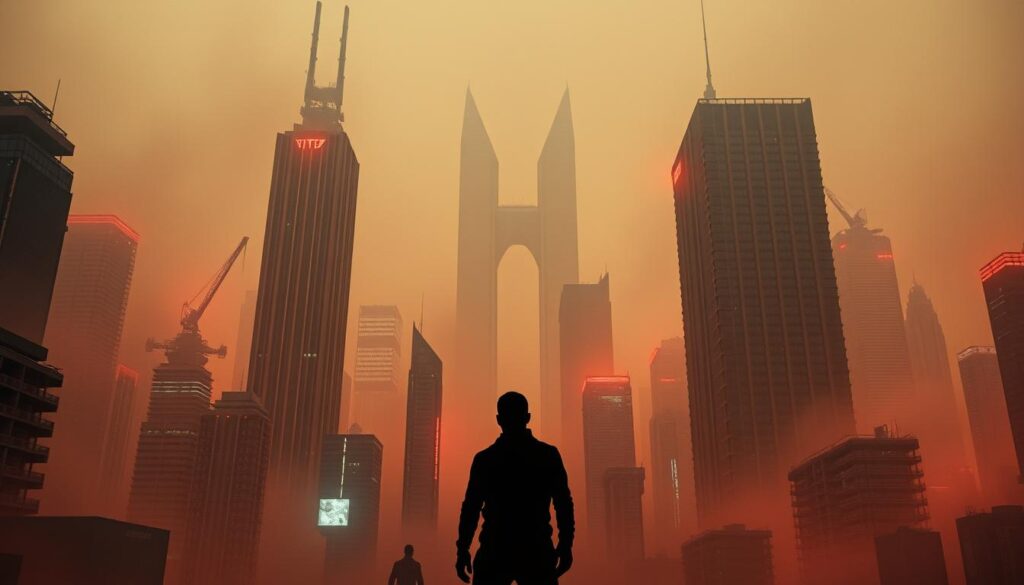
| Film | Theme | Streaming Availability |
|---|---|---|
| Snowpiercer | Class disparity | Netflix, Amazon Prime |
| Battle Royale | Survival | Hulu |
| Circle | Moral dilemmas | Paramount+ |
| The Platform | Resource inequity | Netflix |
Movies Featuring Unique Storytelling
Unique storytelling takes center stage in many survival films, offering viewers a gripping experience while examining the human psyche under extreme circumstances. These films often immerse audiences in claustrophobic settings, allowing for deep character exploration and introspection. They challenge norms and provoke thought regarding survival instincts and moral choices.
Narrative Techniques in Survival Films
Survival films utilize various narrative techniques to engage viewers. For example, “The Platform” presents a vertical prison where prisoners must navigate their relationships while confronting harsh realities of hunger and desperation. “Cube,” on the other hand, places strangers in a maze filled with deadly traps, compelling them to rely on each other as they grapple with an enigmatic environment. Films such as “Snowpiercer” and “Parasite” highlight class struggles through their plots, demonstrating how unique storytelling can illuminate societal inequalities.
Emotional Depth in Dystopian Narratives
Emotional depth resonates throughout dystopian narratives, drawing audiences into the characters’ tumultuous journeys. “Circle” challenges ethical dilemmas among its characters, forcing them to make life-or-death decisions that reveal their moral compass. Meanwhile, “High-Rise” examines the decay of society within a luxury apartment, exposing raw human emotions in a world crumbling under class warfare. These films display the profound emotional landscapes that arise from survival, echoing the relentless pursuit of hope amid despair.
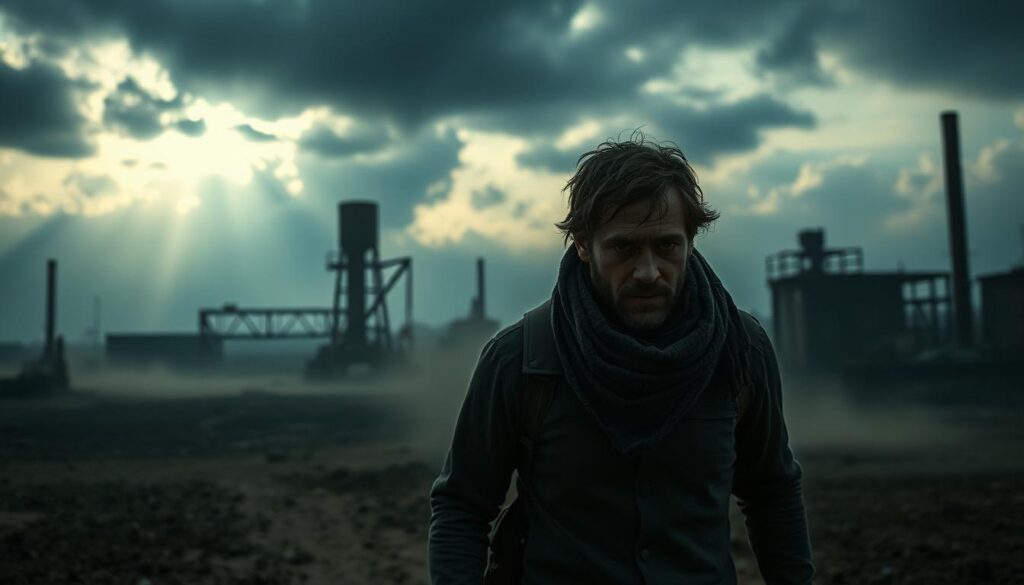
Similar Themes in Horror Films
Horror films often delve into complex themes, paralleling societal struggles and deep psychological fears. Movies like “Us” and “The Purge” invite viewers to confront their own realities through a lens of fear, power, and social commentary. The blending of thrilling suspense with profound societal messages makes these horror films not only entertaining but intellectually stimulating.
The Psychological Element of Fear
The psychological element of fear is a driving force in many horror films. From survival scenarios in “The Human Race” to the relentless dread depicted in “The Strangers,” filmmakers leverage fear to create tension and engagement. For instance, “Vacancy” emphasizes the idea that not all strangers are wholesome, tapping into our primal instincts about trust and safety. Such narratives compel viewers to confront their own fears while immersed in terrifying scenarios.
Social Commentary in Horror
Social commentary permeates the horror genre, highlighting pressing issues within society. Films like “Battle Royale” critique violence and survival instincts, exploring how extreme situations expose societal flaws. “The Belko Experiment” and “Escape Room” portray life-and-death scenarios where morality is questioned, and human nature is tested. These films serve as mirrors, reflecting real-world problems through horrifying yet thought-provoking storylines.
| Film | Theme | Social Commentary | IMDb Score |
|---|---|---|---|
| The Purge | Class Divide | Normalizing Violence | 6.4 |
| The Human Race | Survival | Extremes of Human Nature | 5.0 |
| Hell Fest | Illusion vs. Reality | Innocence Shattered | 5.5 |
| Don’t Breathe | Home Invasion | Instincts and Power Dynamics | 7.1 |
| Us | Doppelgangers | Privilege and Division | 6.8 |

Notable Films with Class Struggles
Diving into the realm of class struggles, several films become prominent examples that embody the nuances of societal conflict. Two standout titles are *Snowpiercer* and *Parasite*, both of which engage deeply with themes related to power dynamics and social inequality. These films not only entertain but provoke thought on the intricate layers of class disparity.
“Snowpiercer” – A Tale of Class Conflict
*Snowpiercer*, directed by Bong Joon-ho, presents a powerful metaphor for class struggles through its confined train setting. In this film, the last remnants of humanity cling to survival aboard a train perpetually circling a frozen wasteland. Each car represents a different social class, creating blatant divisions that escalate tensions and conflicts among passengers. This stark portrayal of inequality captivates viewers while shedding light on the harsh realities of societal hierarchies and the fight for survival.
“Parasite” – Engaging with Economic Themes
*Parasite*, another exceptional work by Bong Joon-ho, intricately explores the relationship between two families from contrasting economic backgrounds. Through a masterful blend of drama and dark comedy, this film highlights the manipulative tactics that the underprivileged use to infiltrate the lives of the affluent. The narrative artfully reflects on issues of class struggle, survival, and the lengths individuals will go to escape poverty. By capturing these themes, *Parasite* resonates with audiences, encouraging deep reflections on social inequalities and the human experience.
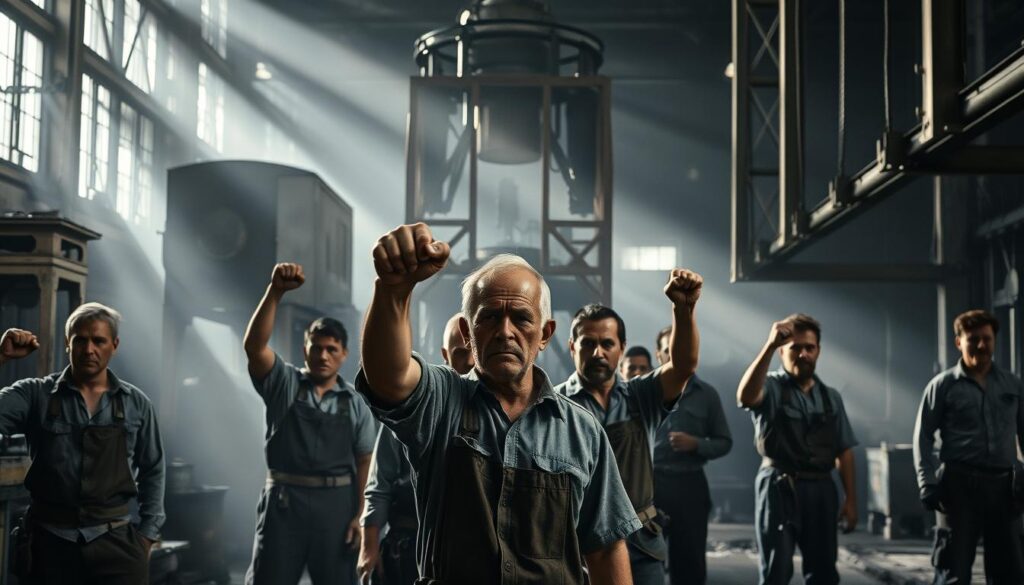
Exploring Psychological Thrillers
Psychological thrillers captivate audiences by delving into the complexities of the human mind and the moral dilemmas faced by characters. Two films that exemplify powerful storytelling within this genre are “Circle” and “Exam.” Each film provides a distinctive look at trust, fear, and the lengths individuals will go to in desperate situations. The unique settings amplify the tension found in these intense psychological experiments.
“Circle” – An Intense Psychological Experiment
“Circle” traps its characters in a deadly game where they must make life-or-death decisions with significant moral implications. Participants, standing in a circle, can choose who lives and who dies, exposing their fears and inherent values. This intense psychological experiment creates an atmosphere of paranoia, forcing viewers to question the morality of their choices in high-pressure scenarios.
“Exam” – A Mind-Bending Challenge
In “Exam,” a group of candidates competes for a coveted job at a mysterious company, facing a mind-bending challenge that tests their intellect and psychological resilience. As they attempt to solve an enigmatic puzzle, underlying tensions and trust issues arise. The film explores how individuals react when confronted with the unknown, making it a quintessential example of the genre. Together, these films illustrate the gripping nature of psychological thrillers, engaging viewers through their intricate narratives and profound themes.
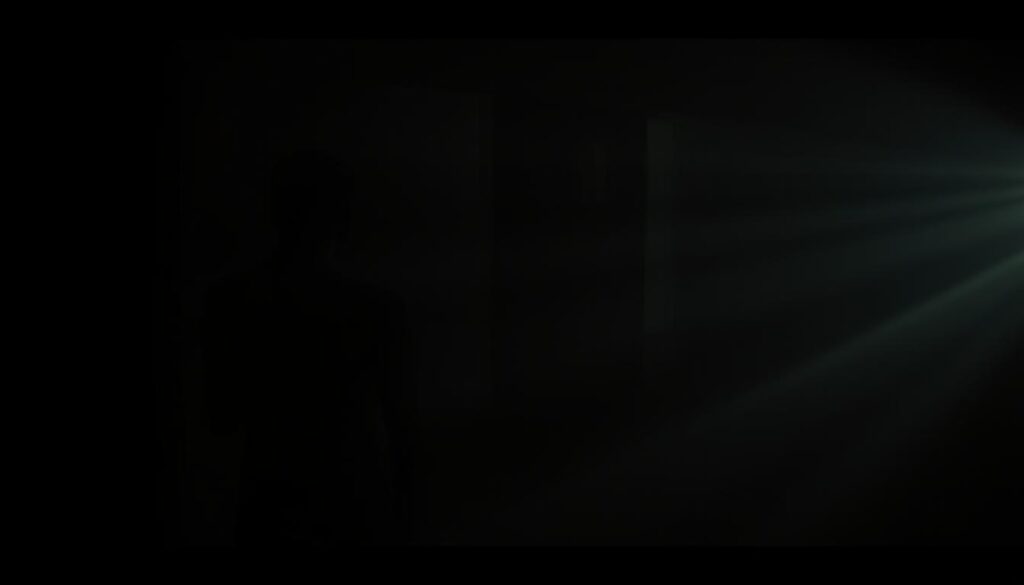
International Films Worth Watching
Exploring international films offers a rich tapestry of storytelling that extends beyond mainstream cinema. Two remarkable entries in this domain are the Spanish thriller “The Platform” and the Brazilian film “Bacurau.” These films reflect distinctive cultural narratives while addressing pressing social issues through intense visuals and compelling plots.
Spanish Thriller “The Platform”
“The Platform” stands out as a critical examination of social stratification through its gripping narrative. Set in a dystopian setting, this Spanish thriller captivates with its allegorical elements. The film explores themes of hunger and desperation, encouraging viewers to reflect on their own societal structures. Its artistic vision and strong performances have earned it international acclaim, making it a standout in global cinema.
Brazilian Film “Bacurau”
“Bacurau” takes a bold stance by weaving together elements of thriller and social commentary. This Brazilian film, set in a fictional town facing an existential threat, powerfully encapsulates feelings of resistance and cultural identity. Its unconventional storytelling paired with striking visual aesthetics ensures that it resonates deeply with audiences. By blending genres, “Bacurau” challenges viewers while offering a poignant reflection on contemporary society.
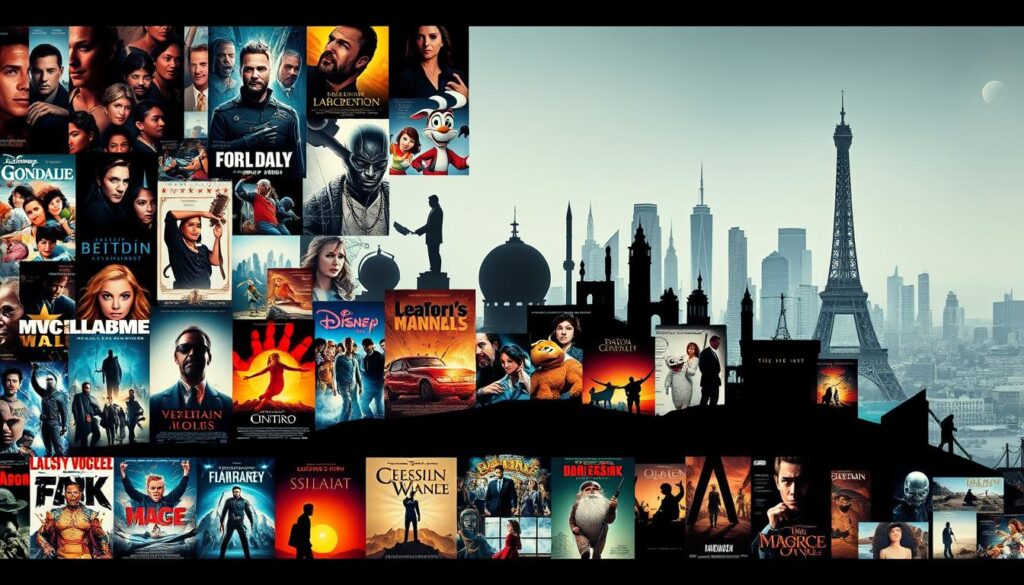
Uncovering Satirical Dystopias
Satirical dystopias often provide a lens through which societal flaws can be examined. Films like “The Hunt” and “Idiocracy” serve as darkly humorous reflections on ideological divides, using humor and critique to reveal deep-rooted issues. These narratives challenge audiences to consider the absurdities within contemporary society while delivering engaging and thought-provoking entertainment.
“The Hunt” – A Darkly Humorous Take
“The Hunt” presents a provocative exploration of class warfare, utilizing satire to critique societal divisions and the consequences of extreme ideologies. With a plot that pits hunters against the hunted, the film highlights the lengths to which individuals will go when driven by their beliefs. The dark humor injected throughout the movie serves to disarm viewers, making them reflect on the absurdities of their realities while eliciting laughter in unexpected moments.
“Idiocracy” – A Cautionary Tale
“Idiocracy” delivers a stark warning about societal decline through a comedic narrative that is both entertaining and alarming. In this satirical dystopia, a man awakens in a future where intelligence has drastically diminished, resulting in a world filled with ignorance. The film effectively critiques the consequences of cultural apathy and emphasizes the importance of education and critical thinking. Through its engaging portrayal of a dystopian future, “Idiocracy” encourages audiences to ponder the trajectory of their own society.
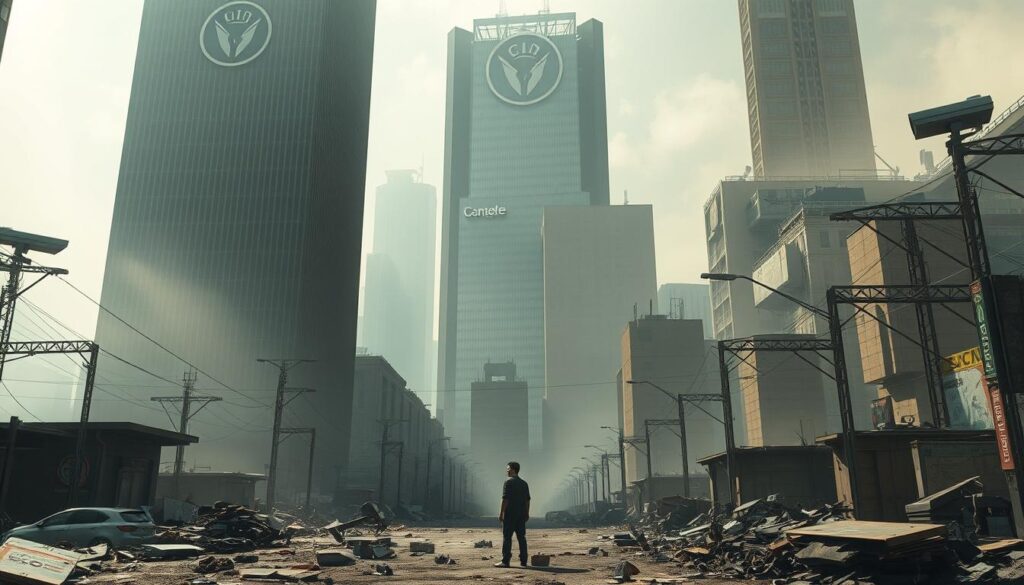
Unique Settings in Films
Films that utilize unique settings often create an intense atmosphere, enhancing both suspense and engagement. In this realm, “The Belko Experiment” and “Escape Room” stand out for their gripping narratives set in confined locations, presenting both physical and psychological challenges. These films exemplify how distinct environments can amplify tension and push characters to their limits.
The Belko Experiment – Office Space Gone Wrong
In “The Belko Experiment,” an ordinary office building transforms into a deadly arena as employees must participate in a brutal survival game. This office setting, often associated with stability, quickly shifts into chaos, making every corner feel like a potential threat. The film effectively uses its location to interrogate human instincts under dire circumstances.
Escape Room – Team Challenges and Survival
“Escape Room” combines the thrill of puzzle-solving with life-and-death stakes. As players navigate each room, they confront not only physical traps but also their deepest fears. The unique settings in “Escape Room” evoke a sense of urgency, compelling characters and viewers alike to think quickly and adapt under pressure. This collaborative survival narrative resonates with the escalating tension found in “The Platform,” where confined spaces lead to desperate outcomes.
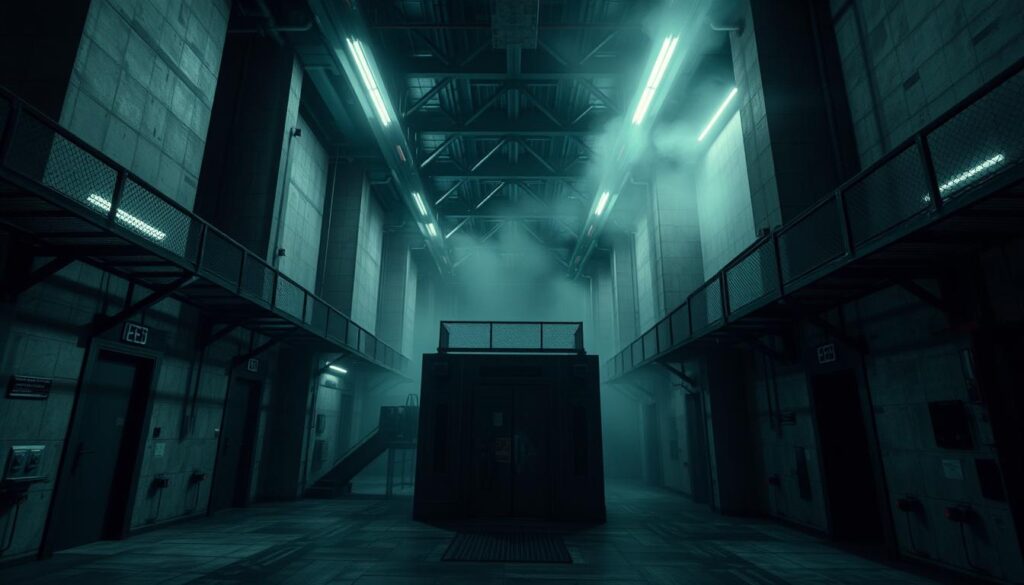
Engaging Sci-Fi Releases
Sci-fi releases offer a unique lens through which audiences can explore complex themes such as reality manipulation and societal dynamics. These films often provoke thought and encourage discussions regarding control and human behavior, particularly in times of uncertainty.
“The Matrix” – Reality Manipulation and Control
“The Matrix” stands as a hallmark in the realm of sci-fi cinema, focusing on the concept of reality manipulation. This film engages viewers by challenging their perceptions of existence and autonomy. The narrative poses significant questions about free will and the nature of reality itself, inviting an exploration of how far someone would go to reclaim control over their lives. Such themes resonate powerfully with audiences, reinforcing the relevance of reality manipulation in today’s world.
“The Purge” Series – Social Experiment Gone Awry
In stark contrast, “The Purge” series depicts a dystopian environment where societal norms are turned upside down through a gruesome social experiment. By showcasing a night when all crime, including murder, is legal, the films delve into the extremes of human behavior under the guise of cleansing society. They serve as dark reflections of real-world issues such as class disparity and ethical boundaries. Both “The Matrix” and “The Purge” underscore how sci-fi can facilitate critical discussions about the structure of society and human morality.
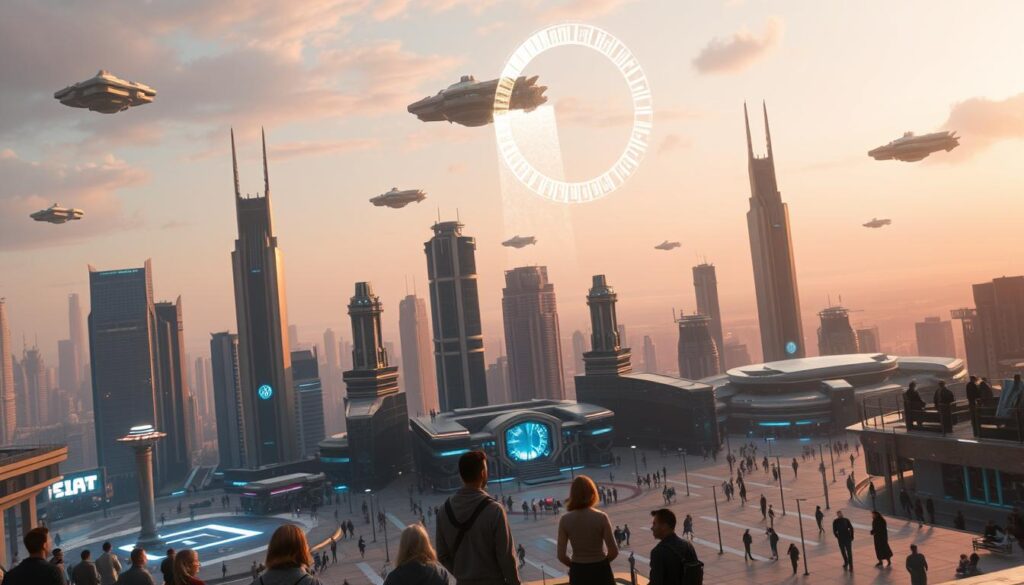
| Film Title | Themes Explored | Viewer Relevance |
|---|---|---|
| The Matrix | Reality Manipulation, Free Will | Challenges perceptions of autonomy |
| The Purge | Social Experiment, Anarchy | Explores extremes of human behavior |
| Snowpiercer | Class Disparity | Highlights societal divisions |
| High-Rise | Class Conflict | Focuses on societal structures |
The intersectional themes of these engaging sci-fi releases continue to captivate audiences, encouraging deeper reflection on societal norms and individual choices.
Exploring Human Nature
Films that delve into human nature often highlight the extremes of survival and the connections people forge, such as the poignant father-son bond. Two notable films stand out in this exploration: “The Road” and “Children of Men.” Both films offer intense narratives that provoke deep reflection on humanity’s resilience in the face of adversity.
“The Road” – Survival and The Father-Son Bond
In “The Road,” the post-apocalyptic journey of a father and son encapsulates the depths of human nature amid bleak circumstances. Their struggle for survival is not just a physical battle but also an emotional one, embodying the father-son bond that drives their actions. The film illustrates profound themes of love, sacrifice, and hope, making it a compelling exploration of what it means to be human in dire situations.
“Children of Men” – Hope in Despair
“Children of Men” presents a dystopian world where society faces collapse, yet within this chaos, there lies a flicker of hope. The narrative captures the essence of human nature through its exploration of despair and the quest for survival. As characters navigate uncertainty, their innate desire for connection and meaning shines through, ultimately highlighting themes of redemption and the endurance of the human spirit.
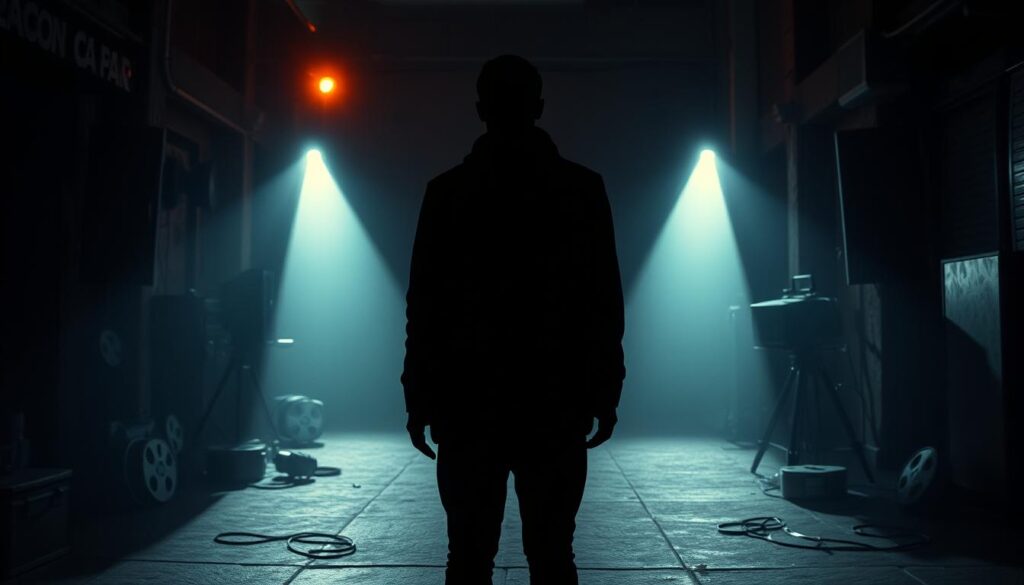
The Importance of Suspense
Suspense plays a crucial role in heightening viewer engagement, especially in films that craft a compelling psychological journey. Two noteworthy choices in this genre, “Gerald’s Game” and “Fractured,” exemplify the importance of suspense through their intense narratives and intertwining family dynamics.
“Gerald’s Game” – A Tense Psychological Journey
“Gerald’s Game,” adapted from Stephen King’s work, captures the essence of suspense through a woman’s harrowing experience of isolation. This film delves into her internal battle, showcasing how external circumstances amplify emotional turmoil. The stakes rise as you witness her struggle for survival, emphasizing the psychological journey that captivates audiences. The tension created throughout the narrative not only keeps viewers on the edge of their seats but also engages them deeply with the protagonist’s plight.
“Fractured” – Family Dynamics and Suspense
“Fractured” intricately weaves family dynamics into its suspense-driven plot. As the narrative unfolds, unexpected twists reveal the fragility of trust and relationships. This film keeps you guessing with its unpredictable storyline, demonstrating how family interactions can heighten tension and engage viewers in a gripping psychological journey. The combination of familial conflict and suspense amplifies the emotional stakes, making the experience all the more powerful.
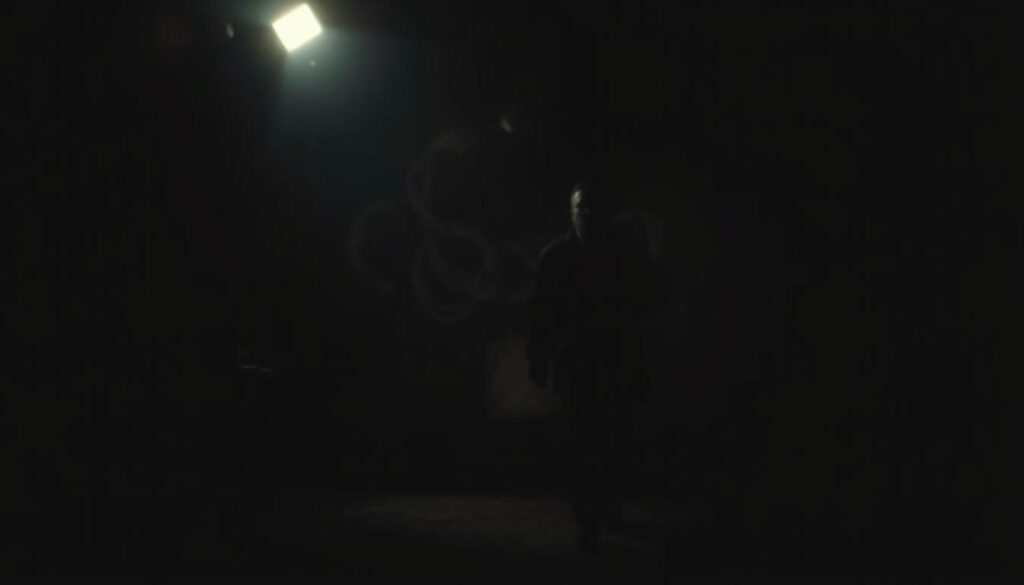
Analyzing “The Platform” as a Benchmark
“The Platform” stands out in modern cinema as a benchmark for both its narrative depth and filmmaking techniques. This film merges intriguing storytelling with impactful visuals, highlighting themes of inequality and survival that generate a strong viewer impact. Through meticulous film analysis, one can appreciate the ways this movie invites audiences to reflect on societal structures.
Film Techniques That Stand Out
The cinematography in “The Platform” plays a pivotal role in shaping its narrative. The use of confined spaces enhances the tension, engaging viewers with its claustrophobic atmosphere. Creative camera angles foster a sense of disorientation that mirrors the characters’ experiences. This unique blend of visual storytelling and pacing sets a strong benchmark for other filmmakers exploring similar themes.
Main Themes and Viewer Impact
At its core, “The Platform” tackles the pressing issues of class disparity and human survival instincts. Its portrayal of individuals navigating a rigid social hierarchy resonates deeply, especially in today’s climate. Audiences are left contemplating their values and the broader implications of solidarity in dire situations. The film’s ability to evoke such strong emotional reactions highlights its significance in both the dystopian genre and contemporary film analysis.
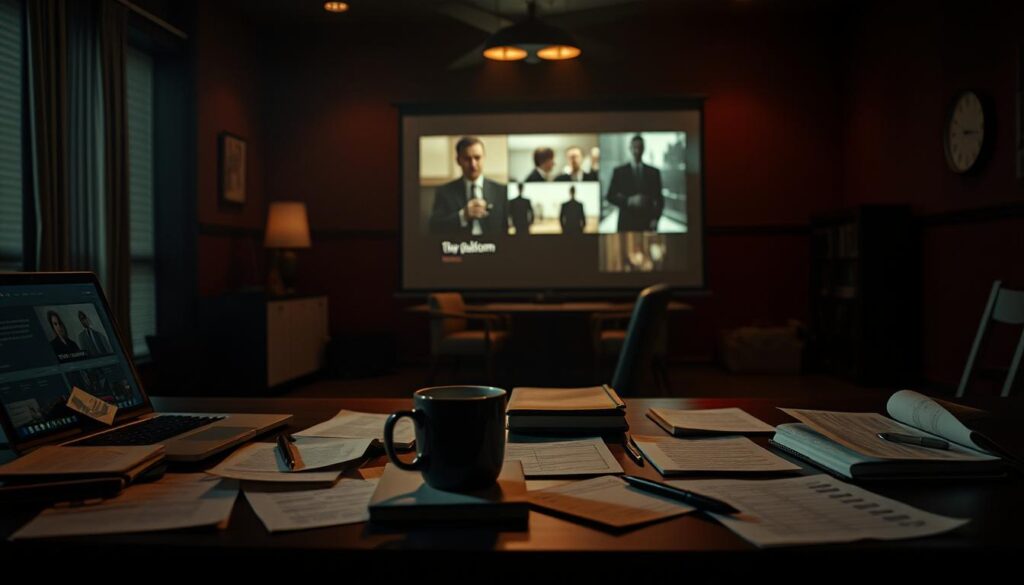
Recommendations for a Movie Marathon
Creating an unforgettable movie marathon involves a careful selection of films that resonate deeply and evoke thought-provoking discussions. To maximize the impact of your viewing experience, consider a recommended viewing order that blends various themes and genres. Films like “Parasite,” which won the Academy Award for Best Picture in 2019, can seamlessly transition into “Snowpiercer,” enhancing the exploration of class struggles. Incorporating “The Platform” at pivotal moments can elevate the tension and thematic intensity during your marathon.
Suggested Viewing Order for Maximum Impact
Your movie marathon can offer a rollercoaster of emotions and insights when structured thoughtfully. Here’s an engaging suggested viewing order:
| Film Title | Year Released | Runtime | Thematic Focus |
|---|---|---|---|
| The Platform | 2019 | 94 minutes | Class Struggle |
| Parasite | 2019 | 132 minutes | Wealth Disparity |
| Snowpiercer | 2013 | 126 minutes | Class Conflict |
Pairing Movies with Themes for Discussion
To deepen the experience of your movie marathon, consider pairing movies with relevant discussion prompts. Focus on how each film portrays societal issues, character arcs, or narrative styles. Engaging in film discussion enables you and your viewers to unpack significant themes such as:
- Economic inequality in “Parasite” and “Snowpiercer.”
- The nature of survival in “The Platform.”
- Character motivations across all films.

Conclusion: Why You Should Watch These Films
As we wrap up our exploration of dystopian cinema, it’s clear that films like “The Platform” offer profound insights into societal structures. With over 56 million views since its release on Netflix, this Spanish sci-fi horror film effectively critiques economic inequalities and human behavior when survival is threatened. The unique narratives in these films not only entertain but also provoke much-needed dialogue about the complexities of our world.
In these cinematic pieces, you will witness reflections of contemporary issues—from the stark divide depicted in “Joker” to the systemic challenges showcased in “Parasite.” These films serve as a mirror to our society, compelling you to engage with themes of greed, corruption, and the human spirit’s resilience. This variety offers a rich opportunity to explore narratives that resonate with today’s audience and stimulate intellectual discussions.
By choosing to watch these films, you’re not just looking for thrilling entertainment but also stepping into an arena that sheds light on human nature and societal dynamics. Dystopian cinema holds a mirror to our realities, encouraging you to contemplate the world around you. Dive into these narratives to unravel deeper meanings and discover why they are not just relevant but necessary reflections of modern life.









